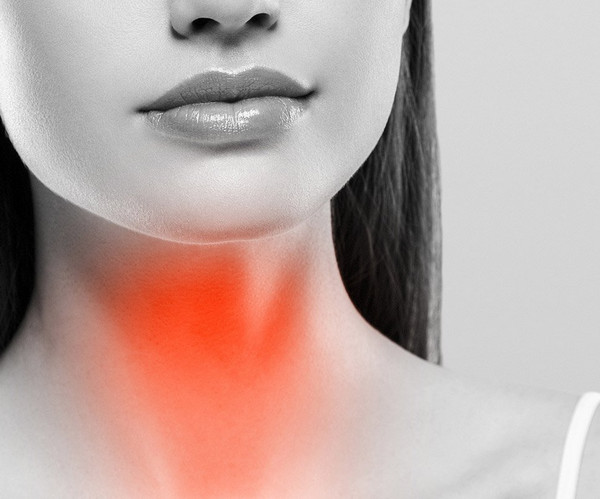underactive thyroid diet what to eat + video
An optimal diet plays a crucial role in managing an underactive thyroid, a condition medically known as hypothyroidism. This metabolic disorder occurs when the thyroid gland doesn’t produce enough thyroid hormones, leading to a range of symptoms such as fatigue, weight gain, and sensitivity to cold. While medication prescribed by a healthcare professional remains a cornerstone of treatment, adopting a well-balanced and targeted diet can greatly support thyroid function and overall well-being.
The Best Diet for Hypothyroidism and Hyperthyroidism :
Here’s a comprehensive guide on what to eat for an underactive thyroid:
Incorporate Iodine-Rich Foods: Iodine is essential for thyroid hormone production. Including iodine-rich foods like iodized salt, seafood (such as fish and seaweed), dairy products, and eggs can help maintain proper thyroid function. However, it’s important not to overconsume iodine, as excessive intake can exacerbate thyroid issues.
5 Thyroid Diet Tips for Better Health & Weight Loss :
Prioritize Selenium: Selenium is a trace mineral that supports the conversion of thyroid hormones and helps protect the thyroid gland from oxidative stress. Brazil nuts, whole grains, legumes, and lean meats are excellent sources of selenium.
Opt for Lean Protein: Lean protein sources like poultry, fish, beans, and lentils are beneficial for individuals with an underactive thyroid. Protein aids in tissue repair and supports a healthy metabolism, which can help counteract the sluggishness often associated with hypothyroidism.
Choose Complex Carbohydrates: Complex carbohydrates, such as whole grains (oats, quinoa, brown rice), fruits, and vegetables, provide sustained energy and promote balanced blood sugar levels. This is particularly important for those with an underactive thyroid, as fluctuations in blood sugar can exacerbate fatigue and energy levels.
Include Healthy Fats: Healthy fats, like avocados, nuts, seeds, and olive oil, support hormone production and overall cell function. They also assist in absorbing fat-soluble vitamins, which are crucial for thyroid health.

Monitor Cruciferous Vegetables: While cruciferous vegetables (broccoli, cauliflower, Brussels sprouts, cabbage) contain compounds that can potentially interfere with thyroid function when consumed in large amounts, they can generally be enjoyed in moderation as part of a well-balanced diet. Cooking these vegetables can help mitigate their impact on thyroid function.
Stay Hydrated: Proper hydration is key for overall health, including thyroid function. Drinking sufficient water supports metabolism, digestion, and circulation.
Limit Processed Foods and Sugars: Processed foods and excessive sugars can contribute to inflammation and disrupt hormone balance. Minimizing their intake can help maintain stable energy levels and support weight management.
Moderate Caffeine Intake: While moderate caffeine consumption is generally acceptable, excessive caffeine can interfere with thyroid hormone absorption. Be mindful of your caffeine intake and consider opting for herbal teas.
Consult a Healthcare Professional: It’s important to work closely with a healthcare provider or a registered dietitian when making significant dietary changes, especially if you have a pre-existing medical condition like an underactive thyroid. They can provide personalized guidance based on your specific needs and health goals.
Essential Vitamins: Certain vitamins play a crucial role in thyroid health. Vitamin D, for example, has been linked to thyroid function, and deficiency can impact hormone production. Sources of vitamin D include fortified dairy products, fatty fish, and safe sun exposure. Additionally, vitamin A is important for thyroid hormone synthesis, and it can be found in colorful vegetables like carrots, sweet potatoes, and spinach.
Omega-3 Fatty Acids: Omega-3 fatty acids, found in fatty fish like salmon, walnuts, flaxseeds, and chia seeds, have anti-inflammatory properties that can help reduce inflammation often associated with thyroid issues. Incorporating these healthy fats into your diet can contribute to better thyroid function.
Probiotics for Gut Health: A healthy gut is essential for overall well-being, including thyroid function. Probiotics, found in yogurt, kefir, sauerkraut, and other fermented foods, support gut health by promoting a balanced microbiome. This can indirectly benefit thyroid function by supporting immune and inflammatory responses.
Iron-Rich Foods: Iron deficiency is common among individuals with hypothyroidism and can exacerbate symptoms such as fatigue and hair loss. Including iron-rich foods like lean meats, beans, lentils, and fortified cereals can help address this concern.
Zinc-Rich Choices: Zinc is necessary for thyroid hormone production and function. Foods like nuts, seeds, whole grains, and legumes provide a good source of zinc to support your thyroid health.
Hydrochloric Acid (HCL) Enhancers: Adequate stomach acid is necessary for proper nutrient absorption, including minerals like zinc and selenium. Apple cider vinegar, lemon water, and digestive enzymes can help support HCL production.
Gluten Consideration: Some individuals with thyroid issues, particularly autoimmune thyroid conditions like Hashimoto’s thyroiditis, may benefit from reducing or eliminating gluten-containing foods. Gluten has been associated with inflammation and may exacerbate autoimmune responses in susceptible individuals.
Balanced Meal Planning: Distributing your meals and snacks throughout the day can help stabilize blood sugar levels and maintain energy. Aim for a combination of protein, healthy fats, and complex carbohydrates in each meal.
Mindful Cooking Methods: Cooking methods can impact the nutrient content of foods. Opt for methods like steaming, baking, and sautéing to preserve nutrients while avoiding excessive frying or overcooking.
Personalized Approach: Remember that individual needs can vary, and it’s essential to listen to your body. Keep track of how different foods make you feel and adjust your diet accordingly. Regular monitoring of thyroid hormone levels through medical tests will also help guide your dietary choices.
Incorporating these additional points into your underactive thyroid diet can further enhance its effectiveness in supporting thyroid health and managing hypothyroidism-related symptoms. As always, consult with a healthcare professional before making significant dietary changes to ensure they are appropriate for your specific condition and health goals. A collaborative approach between you, your healthcare provider, and a registered dietitian can create a tailored dietary plan that optimally supports your thyroid function and overall wellness.


